Revealed: Aussie families hit by hidden taxes, charges
Hidden taxes and “sin” levies are leaving Aussies hundreds of dollars out of pocket a year. See how much you’re paying with our special calculator.
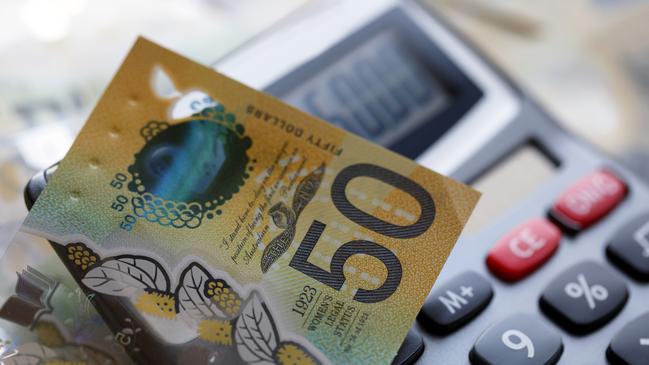
National
Don't miss out on the headlines from National. Followed categories will be added to My News.
Australian families are paying hundreds of dollars a year in hidden taxes and charges on top of income tax and GST, it can be revealed.
Unexpected taxes governments hit ordinary Australians with include state taxes on insurance and federal takes on super, as well as “sin” levies on alcohol and cigarettes.
These fees come on top of better known taxes including petrol excise, stamp duty and car registration.
And at the local government level, Australians also have to pay rates and, in some council areas, extra levies for services such as collecting the bins.
A new tax calculator, developed by News Corp, shows that someone making the average Australian wage of $94,000 a year loses $22,897 to income tax a year — much higher than the $14,047 tax in the UK and far more than the $4175 charged in expat employment hub Singapore and the zero tax payable in Dubai.
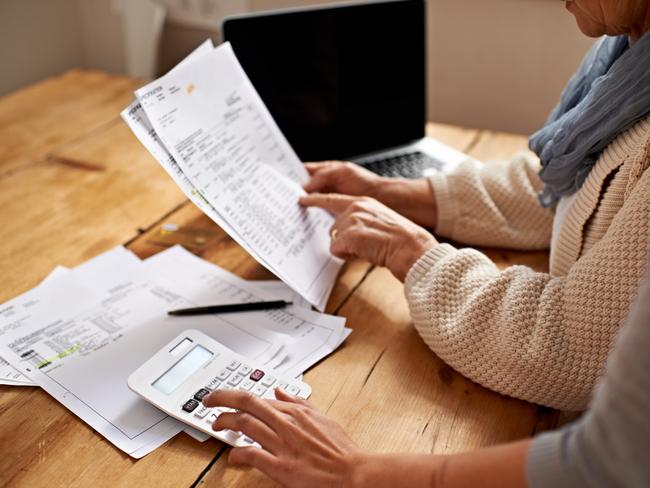
The calculator shows that on a $452 weekly bundle of goods and services including eating out, alcohol, cigarettes, groceries and running a car, Australians pay $131 in GST and other taxes.
This is less than the $147 levied on the same bundle of goods and services in the UK, but about the same as the $133 charged in low-tax Singapore and the $87 charged in Dubai.
A high-income earner making $250,000 a year pays income tax of $88,167 in Australia, $77,077 in the UK and just $39,051 in Hong Kong.
If they spend $540 a week on a bundle of goods and services they pay $152 in extra taxes in Australia, compared to $172 in the UK and just $85 in Hong Kong.
Meanwhile, a lower income earner making $47,000 a year pays $6682 of income tax, versus $4666 in the UK and $4534 in Hong Kong.
If they spend $310 a week on a bundle of goods and services they pay extra taxes totalling $87 in Australia, $100 in the UK and $43 in Hong Kong.
The calculator applies the income tax brackets of countries favoured by Australian expatriates as well as the GST and indirect taxes in those same regions in an Australian setting.
Experts say the tax system is too complicated and should be simplified.
Getting rid of just two bad state taxes – stamp duties on land and insurance – could save the Australian economy $12bn a year, or almost $1000 per household, according to Victoria University research.
But most proposals to streamline the system involve increasing the GST from its current rate of 10 per cent – something Treasurer Jim Chalmers has already ruled out in advance of next month’s budget.
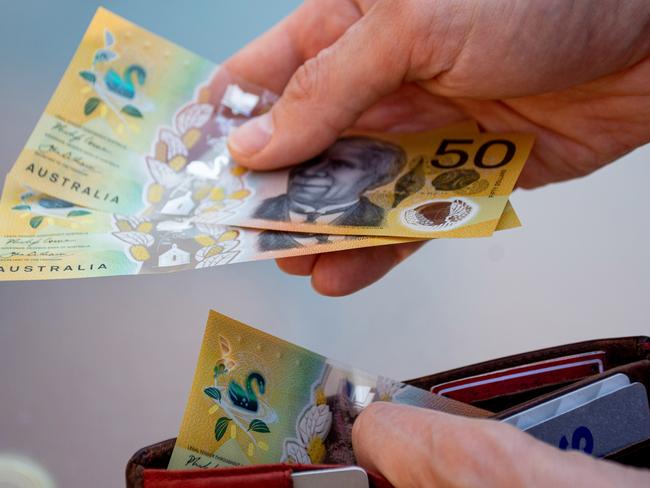
Hidden taxes uncovered by News Corp include slugs on super and the daily commute to work.
Rachel Black, a former South Australian assistant principal who is in the process of retiring to Queensland, said she had to pay a “ridiculous” $40,000 to withdraw her super as a lump sum.
“That’s just cruel,” she said.
Fuel excise is currently 47c a litre, and for residents of Victoria there’s no escape by shifting to an electric car, as Rebecca Koeleman found out.
The state charges 2.6c a kilometre in extra yearly rego fees for electric cars.
“You have to send in a photo of the odometer to show what was the starting point,” she said.
“And then when your renewal comes you’ve got to pay that two and a half cents per kilometre.”
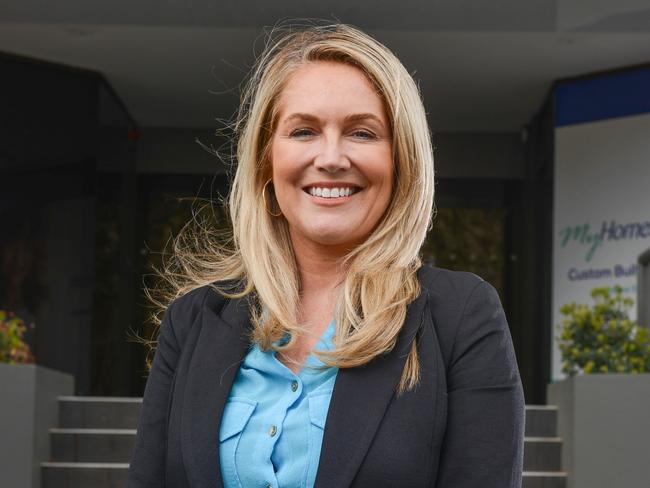
Tammy Barton, the founder of household budgeting company MyBudget, said that while many of the taxes paid by households seemed small, they all added up over time.
“Taxes like council rates and fuel excise are a great example of taxes that can have an impact on a family’s budget,” she said.
While Australia’s total tax take is the ninth smallest of developed nations as a proportion of the size of the economy, we are the fourth-most reliant on personal income tax among OECD countries.
Julie Abdalla, senior tax counsel at the Tax Institute, which represents tax practitioners, said there were about 125 different taxes but 90 per cent of revenue comes from just 10 of them.
She said tax compliance was estimated to cost $40bn a year in 2010 “and that number will have increased exponentially since then”.

The Tax Institute wants the government to move away from relying on income tax and corporate tax by reducing those rates and increasing the take from the GST.
This could be done by increasing the GST rate or cutting out some of the exemptions such as those for fresh food.
Ms Abdalla said the government could compensate lower earners for the hip-pocket shock caused by an increase in GST.
Meanwhile, state governments are heavily reliant on taxes such as stamp duty that experts at Victoria University say suck billions of dollars out of the economy and should be abolished.
Researcher Jason Nassios said that stamp duty makes up about 80 per cent of the cost of moving house.
He said that as a result, people choose not to move and instead “cop the longer commute” associated with a new job.
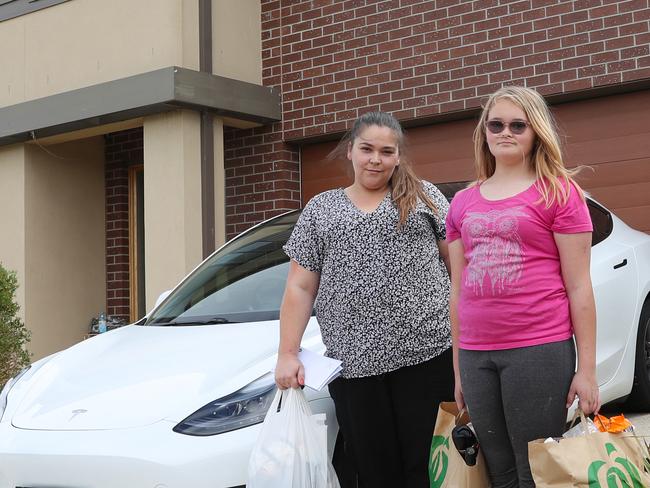
Rebecca Koeleman thought buying an electric car would save money on her mega-commute every day from Melbourne’s outer west to inner east.
But thanks to an unexpected Victorian state tax, the move isn’t helping the 35-year-old HR manager as much as she had hoped.
She estimates she drives 700km a week from her home in Wyndham Vale to her office in Toorak and back again.
So changing to electric should save plenty – not least by dodging the 47.7c a litre petrol excise levied by the federal government, estimated to cost her around $23 a week.
However, the tax saving dwindles to an estimated $5 a week after the Andrews government’s electric car levy of 2.6c/km is taken into account.
“It’s something they don’t tell you,” Ms Koeleman said.
“I didn’t know about it until I got a message from VicRoads.”
The electric car tax is just one of the many federal, state and local taxes that Ms Koeleman and others pay on top of highly visible taxes like income tax and GST.
In her case, she’s also paying alcohol excise on the $100 a month she spends on beer for her husband.
It’s a double whammy because alcohol excise, which went up in February, is charged on top of GST, leading brewers to estimate 42 per cent of the cost of beer, or $42 in Ms Koeleman’s case, is made up of tax.
She also pays about $2000 a year to the local council in rates and extra bin fees.
More Coverage
Originally published as Revealed: Aussie families hit by hidden taxes, charges




